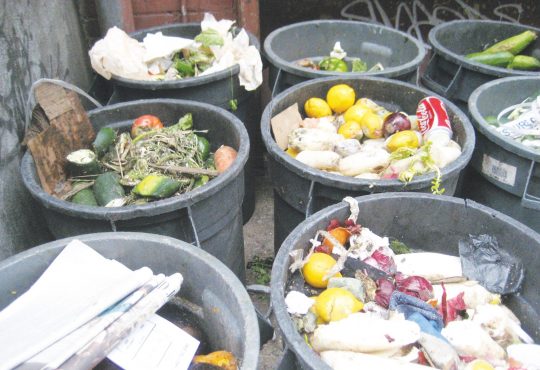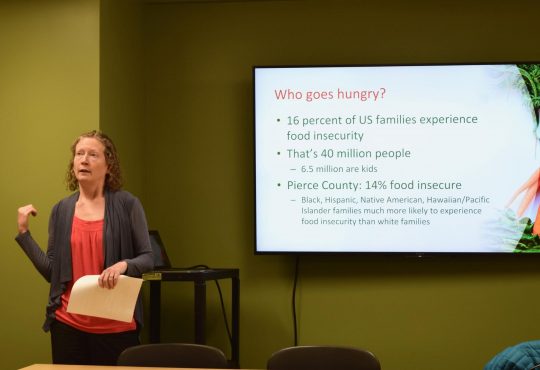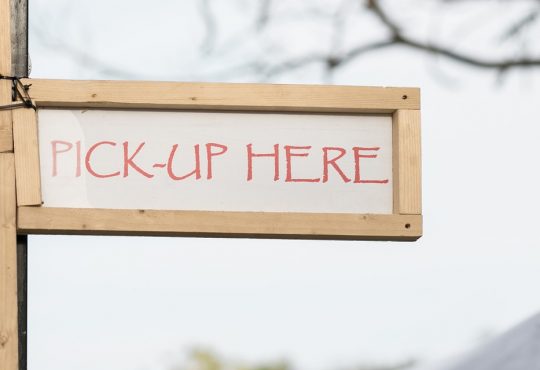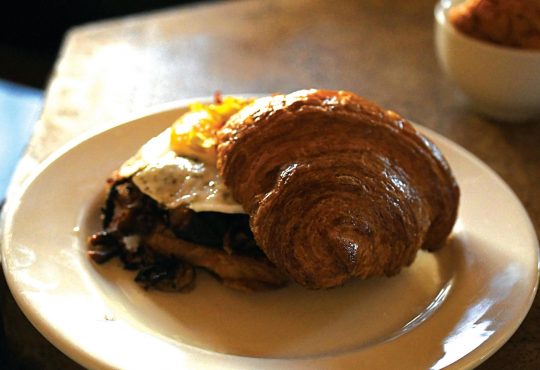How do students choose what food they eat? Do they think about the origin of that food: where it was grown, the farmer who grew it, and the politics behind the food?
Food Justice may not be a topic on the mind of the average college student, but it is one that should be considered, as it affects every individual. And, for those particularly interested in exploring and contributing to food justice, there are opportunities right here on campus to participate.
Emelie Peine, Assistant Professor of IPE, lead an engaging presentation and discussion on the topic ‘Food Sovereignty in the South Sound’ on Wednesday Nov. 5 at 7 p.m.
“We are not only asking how we can alleviate hunger, but also asking why there is hunger,” senior Renee Meschi said. Meschi is the Food Justice Programs Coordinator on campus, a new role this year, and the one who organized the presentation.
Peine clarified the difference between food justice and food sovereignty for the audience, saying that security has to do with knowing where your next meal will come from (the right to food) and sovereignty deals with the right to have access to land, and the needs of small farmers and peasants to be heard and acted upon.
In other words, it is about political sovereignty in addition to eating locally and other common concerns.
Therefore, food sovereignty can be defined as “the right of peoples to healthy and culturally appropriate food, produced through ecologically sound and sustainable methods, and their right to define their own food and agriculture systems,” according to the poster that advertised the event.
Peine opened the discussion with the question of what food sovereignty might look like at Puget Sound. Both students and faculty were eager to share opinions and ideas, bringing passionate energy to the room.
Ideas ranged from adding a larger, more visible on-campus garden to labeling food in the S.U.B. for those who want to know what is grown locally.
One person jokingly suggested that we tear out all of the decorative grass on campus and plant food instead. Is it really such a bad idea?
There was a powerful moment when it was realized that the students have the power to bring about change if they so desire. It is in their hands.
“As a campus, we are a microcosm of the world, and the decisions we make here reverberate outward in big ways,” Meschi said. “As a university, thought is our main product, and as an institution of higher learning, I would love to see my fellow students harness our skills of inquiry to view ourselves as a part of the local foodshed, and turn a critical eye toward ourselves both as eaters, and as members of the surrounding Tacoma community.”
There are two main options for students interested in volunteering: Food Salvage and Backpacks of Hope.
“Food Salvage is in partnership with both Guadalupe House (a transitional house for homeless people) and New Phoebe House Association (where mothers recovering from drug abuse are reunited with their children),” Tacey Smith said. “Volunteers package leftovers from the S.U.B. and deliver them to these organizations where the food is used to feed people who are unable to provide for themselves.”
As Food Justice Programs Assistant, Smith manages both of these programs. She explained that Backpacks of Hope is in partnership with one of the largest food banks in Pierce County, St. Leo’s Food Connection.
“Volunteers package bags of food which are delivered to more than 450 local schoolchildren who are at risk for hunger,” Smith said.
Talks such as the one given by Peine open up the topics included in food justice to university students and give them an opportunity to learn and to bring about change.
“What I love about food justice is how intersectional it is with other forms of justice,” Meschi said. “It is not only helping alleviate hunger in our community, but by noticing which groups are disproportionately affected, this leads us to find themes of race, class, gender, socioeconomic status and even ecological sustainability.”
All students are urged to ask themselves whether they want to see a change in food justice both in the community and on our own campus. If the answer is yes, then fight on, because we (students) have the power. It is our school, our home and we deserve to have a say in what we eat and where it comes from.
For more information about Food Salvage or Backpacks, contact either Renee Meschi or Tacey Smith.





